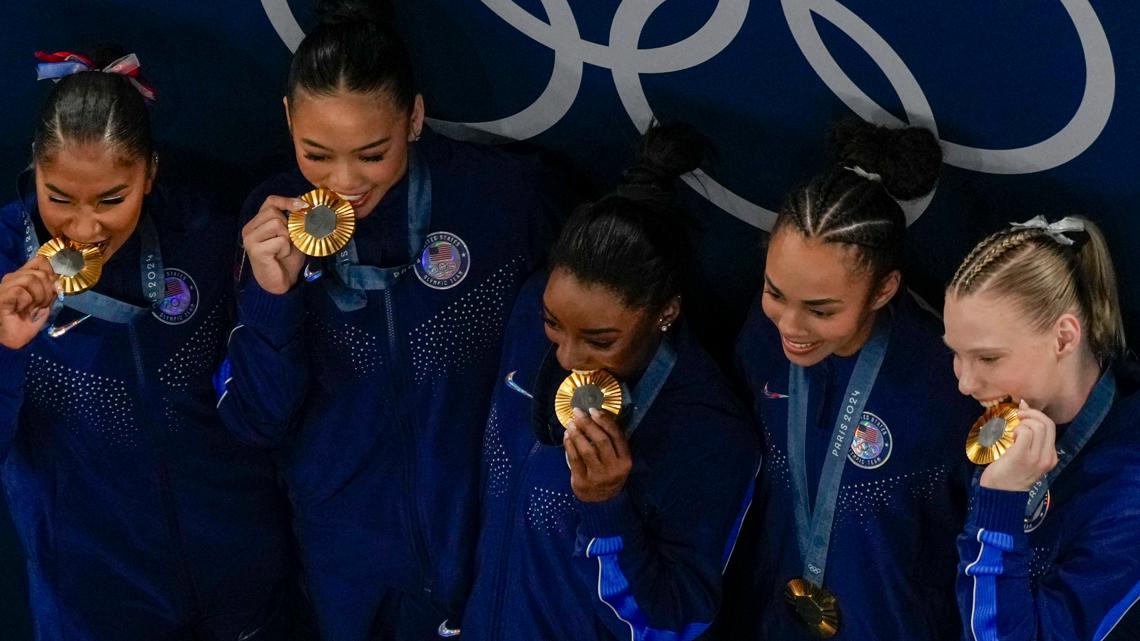WASHINGTON — It's an image seen every two years: Olympic athletes chomping down on their newly won medals while on the podium.
From Michael Phelps to Simone Biles, the tradition has lived on for multiple editions of the games. For the Paris Olympics, the medals are extra special with a piece of the Eiffel Tower embedded into each gold, silver and bronze medal.
So how did the strange act come about?
The answer really comes down to the photographers, rather than the Olympians themselves.
While posing for photos, Olympians are urged to bite down on their medals — an iconic pose that often makes it to front pages, according to the Olympics website.
"It's become an obsession with the photographers," David Wallechinsky, president of the International Society of Olympic Historians told CNN in 2012. “I think they look at it as an iconic shot, as something that you can probably sell. I don't think it's something the athletes would probably do on their own."


For some Olympians, like German luger David Moeller, the tradition came at an unlikely cost. While biting down on his newly minted silver medal at the 2010 Winter Olympics, the athlete broke his tooth.
“The photographers wanted a picture of me holding the medal just with my teeth,” Moeller told German newspaper Bild at the time. “Later at dinner, I noticed a bit of one of my teeth was missing.”
There's also an older answer to the question.
Historically, traders would bite down on gold coins to check the authenticity of the metal when it was used as a form of currency. Since gold is a soft metal, the bite would leave dents on the coins — meaning it was real gold.
The question of authenticity doesn't quite apply anymore as the International Olympic Committee stopped awarding pure gold medals in 1912.





